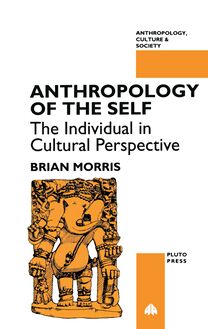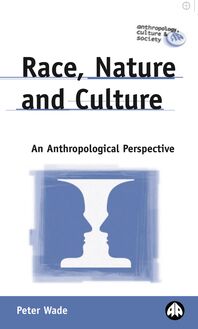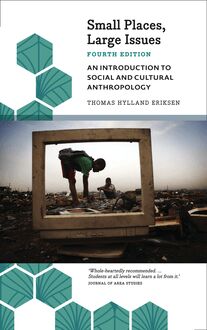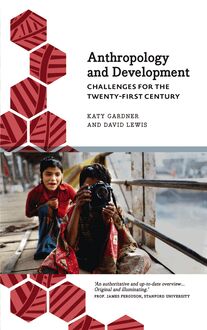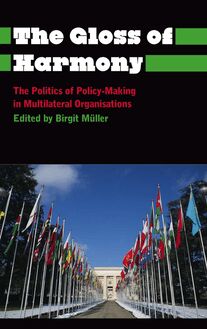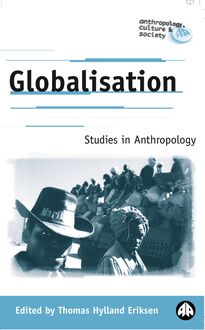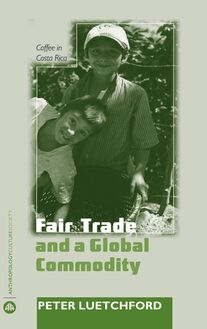-
 Univers
Univers
-
 Ebooks
Ebooks
-
 Livres audio
Livres audio
-
 Presse
Presse
-
 Podcasts
Podcasts
-
 BD
BD
-
 Documents
Documents
-
- Cours
- Révisions
- Ressources pédagogiques
- Sciences de l’éducation
- Manuels scolaires
- Langues
- Travaux de classe
- Annales de BEP
- Etudes supérieures
- Maternelle et primaire
- Fiches de lecture
- Orientation scolaire
- Méthodologie
- Corrigés de devoir
- Annales d’examens et concours
- Annales du bac
- Annales du brevet
- Rapports de stage
La lecture à portée de main
Vous pourrez modifier la taille du texte de cet ouvrage
Découvre YouScribe en t'inscrivant gratuitement
Je m'inscrisDécouvre YouScribe en t'inscrivant gratuitement
Je m'inscrisEn savoir plus
Vous pourrez modifier la taille du texte de cet ouvrage
En savoir plus

Description
The thirteen contributors work from the premise that doing fieldwork in an organisation shares essential characteristics with fieldwork in more 'classical' anthropological environments, but that it also poses some particular challenges to the ethnographer, with barriers including the ideological or financial interests of the organisations, protection of resources and competition between organisations.
A number of organisational contexts - including corporations, EU policy arenas, think tanks and the public sector - are explored in case studies from the UK, Japan, Norway, Sweden, Mexico and the USA.
Acknowledgements
Series Preface
1. Entries: Engaging Organisational Worlds - Christina Garsten and Anette Nyqvist
Part I: Corporate Corridors
2. Counter Intelligence: The Contingencies of Clerkship at the Epicentre of Convenience Culture - Gavin Hamilton Whitelaw
3. Counter-Espionage: Fieldwork among Culture Experts in Bang & Olufsen - Jakob Krause-Jensen
4. When Life Goes to Work: Authenticity and Managerial Control in the Contemporary Firm - Peter Fleming
5. Oblique Ethnography: Engaging Collaborative Complicity among Globalised Corporate Managers - Emil A. Røyrvik
Part II: Policy Arenas
6. Access to all Stages?: Studying through Policy in a Culture of Accessibility - Anette Nyqvist
7. Punctuated Entries: Doing Fieldwork in Policy Meetings in the European Union - Renita Thedvall
8. The Instrumental Gaze: The Case of Public Sector Reorganisation - Halvard Vike
Part III: Working the Network
9. All about Ties: Think Tanks and the Economy of Connections - Christina Garsten
10. Working Connections, Helping Friends: Fieldwork, Organisations and Cultural Styles - Brian Moeran
11. Messy Logic: Organisational Interactions and Joint Commitment in Railway Planning - Åsa Boholm
Part IV: Opaque Worlds
12. The Profane Ethnographer: Fieldwork with a Secretive Organisation - Lilith Mahmud
13. Communicative Nature of Money: Aligning Organisational Anthropology with Technocratic Experiments - Douglas R. Holmes
14. Not Being There: The Power of Strategic Absence in Organisational Anthropology - Tara A. Schwegler
15. Momentum: Pushing Ethnography Ahead - Christina Garsten and Anette Nyqvist
Notes on Contributors
Index
Sujets
Informations
| Publié par | Pluto Press |
| Date de parution | 20 octobre 2014 |
| Nombre de lectures | 0 |
| EAN13 | 9781849649162 |
| Langue | English |
| Poids de l'ouvrage | 2 Mo |
Informations légales : prix de location à la page 0,1498€. Cette information est donnée uniquement à titre indicatif conformément à la législation en vigueur.
Extrait
Organisational Anthropology
Anthropology, Culture and Society
Series Editors:
Professor Vered Amit, Concordia University
and
Dr Jon P. Mitchell, University of Sussex
Recent titles:
Claiming Individuality:
The Cultural Politics of Distinction
E DITED BY V ERED A MIT AND N OEL D YCK
Community, Cosmopolitanism and the Problem of Human Commonality
V ERED A MIT AND N IGEL R APPORT
Home Spaces, Street Styles:
Contesting Power and Identity in a South African City
L ESLIE J. B ANK
In Foreign Fields:
The Politics and Experiences of Transnational Sport Migration
T HOMAS F. C ARTER
On the Game:
Women and Sex Work
S OPHIE D AY
Slave of Allah:
Zacarias Moussaoui vs the USA
K ATHERINE C. D ONAHUE
A World of Insecurity:
Anthropological Perspectives on Human Security
E DITED BY T HOMAS E RIKSEN , E LLEN B AL AND O SCAR S ALEMINK
A History of Anthropology Second Edition
T HOMAS H YLLAND E RIKSEN AND F INN S IVERT N IELSEN
Ethnicity and Nationalism:
Anthropological Perspectives Third Edition
T HOMAS H YLLAND E RIKSEN
Globalisation:
Studies in Anthropology
E DITED BY T HOMAS H YLLAND E RIKSEN
Small Places, Large Issues:
An Introduction to Social and Cultural Anthropology Third Edition
T HOMAS H YLLAND E RIKSEN
What Is Anthropology?
T HOMAS H YLLAND E RIKSEN
Discordant Development:
Global Capitalism and the Struggle for Connection in Bangladesh
K ATY G ARDNER
Anthropology, Development and the Post-Modern Challenge
K ATY G ARDNER AND D AVID L EWIS
Border Watch:
Cultures of Immigration, Detention and Control
A LEXANDRA H ALL
Corruption:
Anthropological Perspectives
E DITED BY D IETER H ALLER AND C RIS S HORE
Anthropology’s World:
Life in a Twenty-first Century Discipline
U LF H ANNERZ
Humans and Other Animals Cross-cultural Perspectives on Human–Animal Interactions
S AMANTHA H URN
Culture and Well-Being:
Anthropological Approaches to Freedom and Political Ethics
E DITED BY A LBERTO C ORSÍN J IMÉNEZ
State Formation:
Anthropological Perspectives
E DITED BY C HRISTIAN K ROHN -H ANSEN AND K NUT G. N USTAD
Cultures of Fear:
A Critical Reader
E DITED BY U LI L INKE AND D ANIELLE T AANA S MITH
Fair Trade and a Global Commodity:
Coffee in Costa Rica
P ETER L UETCHFORD
The Will of the Many:
How the Alterglobalisation Movement is Changing the Face of Democracy
M ARIANNE M AECKELBERGH
The Aid Effect:
Giving and Governing in International Development
E DITED BY D AVID M OSSE AND D AVID L EWIS
Cultivating Development:
An Ethnography of Aid Policy and Practice
D AVID M OSSE
Contesting Publics Feminism, Activism, Ethnography
L YNNE P HILLIPS AND S ALLY C OLE
Terror and Violence:
Imagination and the Unimaginable
E DITED BY A NDREW S TRATHERN , P AMELA J. S TEWART AND N EIL L. W HITEHEAD
Anthropology, Art and Cultural Production
M ARUŠKA S VAŠEK
Race and Ethnicity in Latin America Second Edition
P ETER W ADE
Race and Sex in Latin America
P ETER W ADE
The Capability of Places:
Methods for Modelling Community Response to Intrusion and Change
S ANDRA W ALLMAN
Anthropology at the Dawn of the Cold War:
The Influence of Foundations, McCarthyism and the CIA
E DITED BY D USTIN M. W AX
Learning Politics from Sivaram:
The Life and Death of a Revolutionary Tamil Journalist in Sri Lanka
M ARK P. W HITAKER
First published 2013 by Pluto Press 345 Archway Road, London N6 5AA
www.plutobooks.com
Distributed in the United States of America exclusively by Palgrave Macmillan, a division of St. Martin’s Press LLC, 175 Fifth Avenue, New York, NY 10010
Copyright © Christina Garsten and Anette Nyqvist 2013
The right of the individual contributors to be identified as the authors of this work has been asserted by them in accordance with the Copyright, Designs and Patents Act 1988.
British Library Cataloguing in Publication Data A catalogue record for this book is available from the British Library
ISBN 978 0 7453 3247 5 Hardback ISBN 978 1 8496 4916 2 EPUB eBook ISBN 978 1 8496 4917 9 Kindle eBook
Library of Congress Cataloging in Publication Data applied for
This book is printed on paper suitable for recycling and made from fully managed and sustained forest sources. Logging, pulping and manufacturing processes are expected to conform to the environmental standards of the country of origin.
10 9 8 7 6 5 4 3 2 1
Typeset from disk by Stanford DTP Services, Northampton, England Simultaneously printed digitally by CPI Antony Rowe, Chippenham, UK and Edwards Bros in the United States of America
Contents
Acknowledgements
Series preface
1 Entries: Engaging organisational worlds
Christina Garsten and Anette Nyqvist
SECTION ONE: CORPORATE CORRIDORS
2 Counter intelligence: The contingencies of clerkship at the epicentre of convenience culture
Gavin Hamilton Whitelaw
3 Counter-espionage: Fieldwork among culture experts in Bang & Olufsen
Jakob Krause-Jensen
4 When life goes to work: Authenticity and managerial control in the contemporary firm
Peter Fleming
5 Oblique ethnography: Engaging collaborative complicity among globalised corporate managers
Emil A. Røyrvik
SECTION TWO: POLICY ARENAS
6 Access to all stages? Studying through policy in a culture of accessibility
Anette Nyqvist
7 Punctuated entries: Doing fieldwork in policy meetings in the European Union
Renita Thedvall
8 The instrumental gaze: The case of public sector reorganisation
Halvard Vike
SECTION THREE: WORKING THE NETWORK
9 All about ties: Think tanks and the economy of connections
Christina Garsten
10 Working connections, helping friends: Fieldwork, organisations and cultural styles
Brian Moeran
11 Messy logic: Organisational interactions and joint commitment in railway planning
Åsa Boholm
SECTION FOUR: OPAQUE WORLDS
12 The profane ethnographer: Fieldwork with a secretive organisation
Lilith Mahmud
13 Communicative nature of money: Aligning organisational anthropology with technocratic experiments
Douglas R. Holmes
14 Not being there: The power of strategic absence in organisational anthropology
Tara A. Schwegler
15 Momentum: Pushing ethnography ahead
Christina Garsten and Anette Nyqvist
Notes on contributors
Index
Acknowledgements
This book has materialised as the result of a long-term and intimate connection between two spheres of interest and two organisations – social anthropology and organisation studies, as they appear at the Department of Social Anthropology at Stockholm University and at Score (Stockholm Centre for Organizational Research) jointly run by Stockholm University and Stockholm School of Economics. Both these spheres of interest and both these organisations have played a large part in shaping us and our minds, and we believe we have helped to shape them. Many thrilling, productive and improbable ideas are assessed in these organisations, and we have often found ourselves spirited away by the mind-blowing landscapes that spread out before us in anthropological studies of organisations.
Many colleagues in the Department of Social Anthropology and at Score have contributed fertile ideas to this book. We wish to thank Göran Ahrne, Nils Brunsson, Staffan Furusten, Ulf Hannerz, Adrienne Sörbom and Renita Thedvall for sharing our curiosity in how to understand organisations anthropologically. In the wider academic community, we are thankful to the vast numbers of organisation scholars, regardless of disciplinary bent, who have contributed their ideas. Thanks to Melissa Fisher and Janine Wedel for fun and undogmatic conversations on the topic, to Mikkel Flyverbom for encouragingly checking up on analytical progress, to Kerstin Jacobsson for intellectual and friendly support and to Brian Moeran for clever insights and good advice. We also wish to thank Tor Hernes for insisting that this book should be written in the first place and Hervé Laroche for sharing our interest in the seemingly mundane and boring. To our contributing authors – it has been a true adventure to work with you all! Thank you for sharing your research and your stories with us, for constructive conversations and for moving the field ahead. A large chunk of the work for this book has meshed in various ways with life in another kind of organisation: the family. To our respective families – our loving thanks.
Christina Garsten and Anette Nyqvist
Stockholm, Midsummer 2012
Series preface
Anthropology is a discipline based upon in-depth ethnographic works that deal with wider theoretical issues in the context of particular, local conditions – to paraphrase an important volume from the series: large issues explored in small places . This series has a particular mission: to publish work that moves away from an old-style descriptive ethnography that is strongly area-studies oriented, and offer genuine theoretical arguments that are of interest to a much wider readership, but which are nevertheless located and grounded in solid ethnographic research. If anthropology is to argue itself a place in the contemporary intellectual world, then it must surely be through such research.
We start from the question: ‘What can this ethnographic material tell us about the bigger theoretical issues that concern the social sciences?’ rather than ‘What can these theoretical ideas tell us about the ethnographic context?’ Put this way round, such work becomes about large issues, set in a (relatively) small place, rather than detailed description of a small place for its own sake. As Clifford Geertz once said, ‘Anthropologists don’t study villages; they study in villages.’
By place, we mean not only geographical locale, but also other types of ‘place’ – within political, economic, religious or other social systems. We therefore publish work based on ethnography within political and religious movements, occupational or class groups, among youth
-
 Univers
Univers
-
 Ebooks
Ebooks
-
 Livres audio
Livres audio
-
 Presse
Presse
-
 Podcasts
Podcasts
-
 BD
BD
-
 Documents
Documents
-
Jeunesse
-
Littérature
-
Ressources professionnelles
-
Santé et bien-être
-
Savoirs
-
Education
-
Loisirs et hobbies
-
Art, musique et cinéma
-
Actualité et débat de société
-
Jeunesse
-
Littérature
-
Ressources professionnelles
-
Santé et bien-être
-
Savoirs
-
Education
-
Loisirs et hobbies
-
Art, musique et cinéma
-
Actualité et débat de société
-
Actualités
-
Lifestyle
-
Presse jeunesse
-
Presse professionnelle
-
Pratique
-
Presse sportive
-
Presse internationale
-
Culture & Médias
-
Action et Aventures
-
Science-fiction et Fantasy
-
Société
-
Jeunesse
-
Littérature
-
Ressources professionnelles
-
Santé et bien-être
-
Savoirs
-
Education
-
Loisirs et hobbies
-
Art, musique et cinéma
-
Actualité et débat de société
- Cours
- Révisions
- Ressources pédagogiques
- Sciences de l’éducation
- Manuels scolaires
- Langues
- Travaux de classe
- Annales de BEP
- Etudes supérieures
- Maternelle et primaire
- Fiches de lecture
- Orientation scolaire
- Méthodologie
- Corrigés de devoir
- Annales d’examens et concours
- Annales du bac
- Annales du brevet
- Rapports de stage

